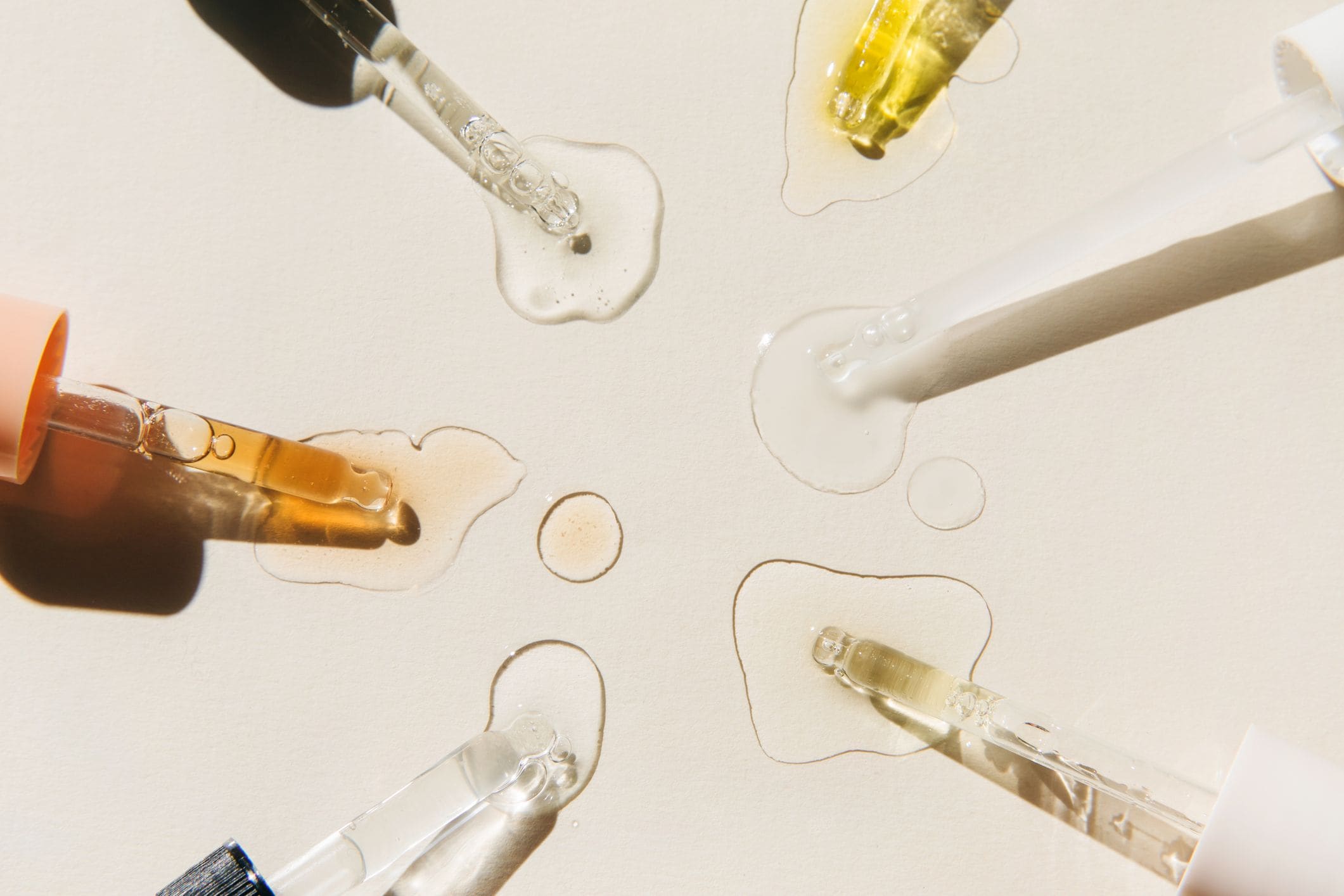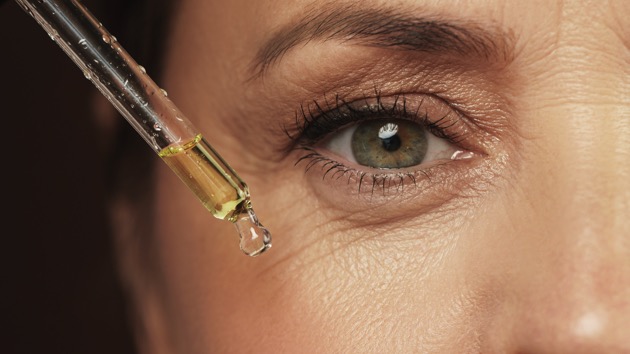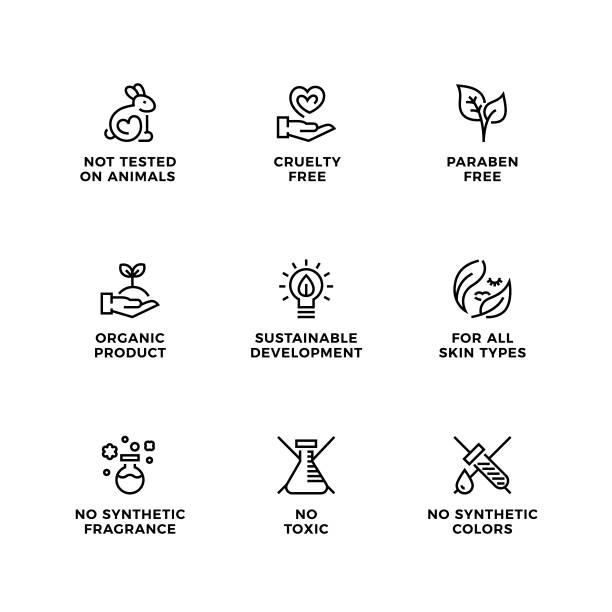Why Cruelty Free Retinol Matters?

WHAT DOES CRUELTY-FREE MEAN?
Before we get into cruelty-free retinol, we need to explain the meaning of the term cruelty-free. This is a simple question with a complicated answer. There is no universally accepted standard for what makes a product “cruelty-free” and what makes cruelty-free retinol, for that matter. Companies can claim to be cruelty-free and simply outsource animal testing.
Others say a company can be cruelty-free so long as it commits to ending the practice of animal testing within a certain timeframe. In general, it’s safe to say that a company without animal testing (in any part of the process) could be considered cruelty-free. That means that no ingredient in the product underwent any form of animal testing.
Some would take this a step further and argue that a company must have all-vegan products to be truly cruelty-free. It’s an ongoing debate. For the purposes of this article, we’ll define a cruelty-free company as one that does not test its ingredients on animals or use animals in its products.
Organizations like Human Society International and Cruelty-free International are trying to ban cosmetics animal testing worldwide, but it’s a difficult and lengthy battle. We want to do our part by helping to eradicate some of the myths surrounding animal testing. Is it just a necessary evil? Are there any viable alternative testing methods? Let’s discuss the difficult topic of animal testing.
CRUELTY-FREE RETINOL IS BEST FOR YOU And THE PLANET
Cruelty-free retinol can clear your conscience and your skin. Synthetic retinols are retinols derived from animals. They can also contain chemicals that are harsh to the skin and cause dryness, redness, or irritation. Vegan retinol, on the other hand, is free of animal derived ingredients. It is full of natural, plant-derived carotenoids. Carotenoids are a vegan alternative that our bodies naturally convert to usable retinoids. Additionally, unlike synthetic retinol, most vegan retinols will act calming and soothing to the skin.
Cruelty-free businesses prioritize the safety of consumers and animals alike. It’s important to note that some cruelty-free businesses haven’t stopped testing altogether. We have decades of prior tests that demonstrate the safety of many chemicals. And there are plenty of alternative tests that can be done without involving animals at all.
CRUELTY-FREE, VEGAN INGREDIENTS
Plant Mother is a cruelty-free brand. This means no animal testing and no animal ingredients in our products. Our serums use only ethically farmed, all-natural ingredients. Instead of relying on harsh chemicals, our cruelty-free retinol serum relies on natural wonders like bakuchiol.
The natural botanical extract bakuchiol can brighten the skin and improve skin texture. Additionally, it can reduce visible signs of aging, even out skin tone, and so much more. Bakuchiol is still relatively new in terms of research, but early signs look promising.
Plant Mother’s organic, plant-based retinol serum gently nourishes and rejuvenates the skin. Our secret is simple: we use what nature has already given us! We extract only the best—antioxidants, Vitamins A, C, and E, beta carotene, the list goes on.
Plant Mother’s retinol serum is proof that we don’t need to kill or harm animals to make high-quality skincare products. Cruelty is not a necessary evil. Cosmetics animal testing is antiquated, inaccurate, and unethical.

CRUELTY-FREE Retinol BeneFits The EnvironMent
Plant Mother’s cruelty-free commitment doesn’t stop at the ingredients list. We are mindful each step of the way, from the farming of our natural ingredients to the packaging that arrives at your front door. Our packaging is zero-waste, 100% recyclable. The Plant Mother product boxes are made of biodegradable pulp fiber instead of plastic. Our cruelty-free retinol and other ingredients are non-GMO and grown cleanly with only natural fertilizers (no pesticides or chemicals).
Moreover, farming without pesticides is essential. It’s estimated that as many as 10,000 animals are killed for every pesticide ingredient tested. In fact, it takes about ten years of animal testing for just one pesticide to gain EPA approval!
IS ANIMAL TESTING FOR SKINCARE PRODUCTS A NECESSARY EVIL?
No. In fact, animal testing has a pretty horrendous track record. The FDA reported that over 90% of compounds look hopeful after animal tests but go on to fail tests on humans. NIH says it’s closer to a 95% failure rate.
How can this be possible? Why is animal testing so inaccurate? And why are we still using a practice that fails far more than it succeeds? Again, the answer is complicated. Animal testing has been around for a long time, as have objections to the practice. To understand the inaccuracy of animal testing, we’ll need to look more closely at how it’s done.
For one, a mouse body isn’t always comparable to a human body. Obvious, I know, but this matters when testing chemicals. For example, what would happen if a topical product was tested on a mouse? The mouse’s skin would absorb the chemicals extremely quickly. This may initially seem helpful—after all, don’t we want quick results? But this can actually harm the accuracy of the results. Animals like rabbits, rats, and mice have skin that absorbs far faster than human skin. How can we confidently determine the product’s safety for humans? Speedy absorption of a higher concentration might endanger a test animal, but our sluggish absorption rate might leave a human subject perfectly fine.

Animal Testing – How Does It Look Like?
Researchers need timely results, and they’re often working with animals that have a far shorter life expectancy than humans. This means exposing test subjects to large concentrations of a chemical all at once. What researchers observe to be side effects could just be the very ordinary effect of an animal overdosing from a compound over 1,000 times more concentrated than the recommended dosage.
That’s not to mention the amount of pain and suffering inflicted on animals during the process. Cosmetics testing takes the lives of half a million animals annually. And for what? An archaic practice that succeeds less than 10 out of 100 times? And I do mean archaic. Animal testing dates all the way back to ancient Greece. Back then, philosophers still debated whether or not animals ought to have rights. Or if animals could feel pain. We’ve resolved both of those questions by now. What’s our excuse?
Mandatory Animal Testing In China
It is not a secret that most large beauty companies have factories in China. Cosmetics products manufactured and / or sold in China have to go through a mandatory animal testing process. L’Oreal, for example, has three production factories in China. Additionally, it sells cosmetic products in China where the country requires cosmetic companies to test on animals. Therefore, most big beauty companies and their products are not cruelty-free and if you’re looking for a cruelty-free retinol serum, you better look for the companies that don’t manufacture in China or import their ingredients from abroad.
PETA has created a database of large companies that do and do not test on animals. This database is called “Beauty Without Bunnies”. It also allows you to search for companies working for regulatory change, and cruelty-free product availability by country and region.
HOW YOU CAN HELP END COSMETICS ANIMAL TESTING
There are a couple ways you can help end cosmetics animal testing around the world. The first is to vote with your wallet. Cosmetics companies that test their products on animals won’t see a need to change unless doing so hurts them financially. Be sure to research the brand before buying, especially if you’re looking for a specific product such as cruelty-free retinol.
You can also get involved with organizations like Humane Society International and Cruelty-free International. They’ve done a lot of good work for the fight to ban animal testing. Only 42 countries currently have bans on cosmetics animal testing. We need organizations to keep fighting for legislation in the remainder. As a volunteer with the Humane Society, you can help in many different capacities. If you’re comfortable working with animals, you could volunteer in direct care or animal sheltering. If you’re more comfortable working with people, there are still plenty of volunteer opportunities! You could help organize a fundraising event, man the phones, or exercise your creativity by developing engaging content for the organization.
Cruelty-free International works daily to advocate for voiceless animals. If you don’t have the means to donate to their cause, there are still ways to help. Their website can guide you through the rewarding process of fundraising.
CONCLUSION
When it comes to cruelty-free retinol, we’ve got you covered. There’s no need to compromise your principles to get great skin. Plant Mother’s cruelty-free vegan retinol is both effective and ethically produced. Our plant-based retinol boasts over 100 nutrients to support collagen and cell regeneration. These all-natural and cruelty-free ingredients can improve skin texture, rebuild collagen, restore the optimal skin pH level, and reduce lines and wrinkles.
Reading about animal testing can be emotionally and mentally draining. Don’t let the serious topic weigh you down too much! Watch a silly comedy, eat something just because it tastes good, or go for a nature walk. Don’t forget to focus on the good news—we can help by supporting cruelty-free businesses and donating time or other resources to animal advocate organizations. The other good news? We don’t have to choose between the wellbeing of our planet, mankind, or animals. Cruelty-free is good for you, the Earth, and all the animals that inhabit it.
Cosmetics companies that test their products on animals are relying on uneducated consumers. Therefore, stay educated and mindful. Support clean skincare brands and vegan skincare products. Over a thousand companies have already heeded the call and become certified cruelty-free. Together, we can make that list grow exponentially. Thank you for reading!
MEDICAL DISCLAIMER
This content is for informational and educational purposes only. It is not intended to provide medical advice or to take the place of such advice or treatment from a personal physician. All readers of this content are advised to consult their doctors or qualified health professionals regarding specific health questions. The publisher of this content does not take responsibility for possible health consequences of any person or persons reading or following the information in this educational content. All viewers of this content, especially those taking prescription or over-the-counter medications, should consult their physicians before beginning any nutrition, supplement, skincare product, or lifestyle program.
